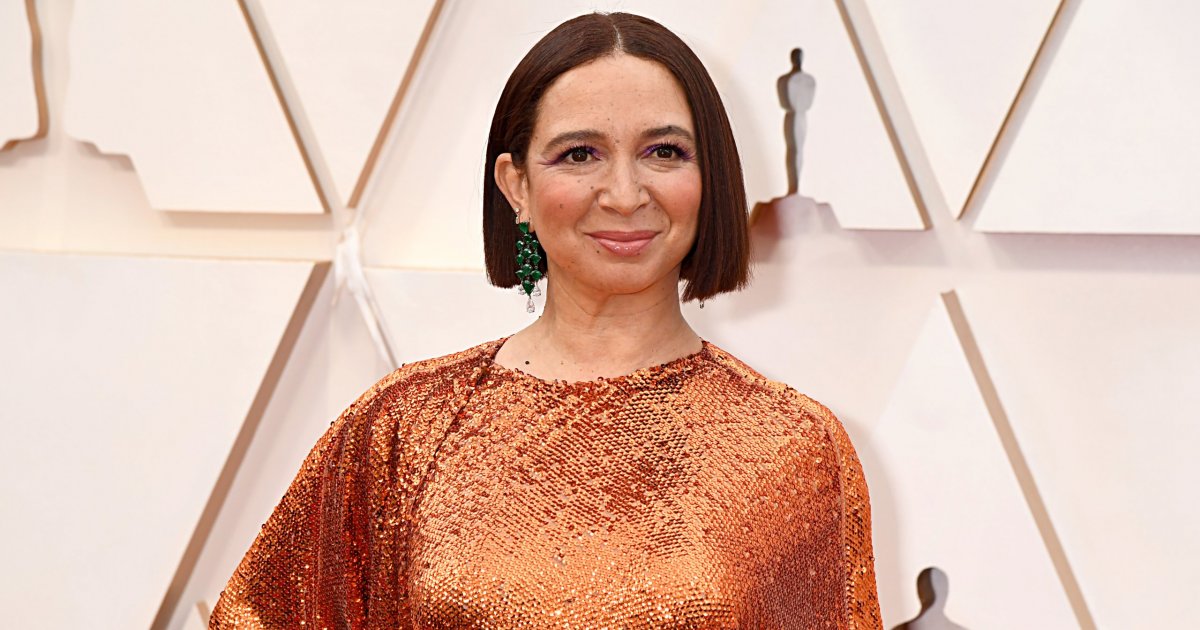Maya's Breast Cancer Loss
- Actress Maya Rudolph, 48, dominates the comedy world with her unique sense of humor; the comedian lost her mom to breast cancer in 1979.
- Breast cancer has a number of risk factors, such as family cancer history, the BRCA1 or BRCA2 gene mutation, and lifestyle-related risk factors, such as alcohol consumption.
- Screening for this disease is done via mammogram, which women should start getting at 40, or earlier if they have a history of breast cancer in their family.
Breast Cancer Risk Factors: BRCA1 & BRCA2
Breast cancer has several lifestyle-related risk factors, such as alcohol consumption and having children later in life. Some breast cancer risk factors are inherent, though, like the BRCA1 and BRCA2 gene mutations, which increase not only the risk of developing breast cancer but also ovarian cancer. Related: Many Women Say They're Drinking More During Pandemic, 70% Don't Know Alcohol Increases Cancer Risk, According to SurvivorNet SurveyDr. Elizabeth Comen, a Medical Oncologist at Memorial Sloan Kettering Cancer Center, said in a previous interview that there’s a strong correlation between alcohol and breast cancer. “One of the things that we know, and the American Society of Clinical Oncology has recently come out with a statement to this effect, is that actually, alcohol does increase the risk of breast cancer. It doesn’t dramatically increase the risk of breast cancer, but with every drink, there is a linear response.”
Related: New Research Claims All Breast Cancer Patients Should Get Genetic TestingIs It True?
“And what that means is a linear response to risk, meaning that each drink increases a woman’s risk for breast cancer,” said Dr. Comen, “So binge drinking, it’s not good for anybody. And it’s also not good for a woman’s increased risk of breast cancer. And so patients ask me this all the time– well, how much can I drink? If you want to have absolutely no risk from alcohol, then don’t drink at all. But probably having less than four glasses a week of alcohol is probably OK. I would feel comfortable with that. I think we’re learning every day about what the contribution of alcohol may be to cancer.”
Alcohol Can Increase the Risk of Developing Breast Cancer
Mammogram Breast Cancer Screenings
Breast cancer is typically screened via a mammogram, which looks for lumps in the breast that may be cancerous or lead to cancer. It’s advised that women begin getting mammograms at age 40. Dr. Connie Lehman, the Chief of Breast Imaging Division at Massachusetts General Hospital, said in a previous interview, “If you haven’t gone through menopause yet, I think it’s very important that you have a mammogram every year. We know that cancers grow more rapidly in our younger patients, and having that annual mammogram can be lifesaving.”
Related: When You're Getting a Mammogram, Ask About Dense Breasts
“After menopause, it may be perfectly acceptable to reduce that frequency to every two years. But what I’m most concerned about is the women who haven’t been in for a mammogram for two, three, or four years, those women that have never had a mammogram. We all agree regular screening mammography saves lives. Every doctor that I know, every organization that I know really encourages women to have a mammogram. I want to be completely clear. If you are between 50 and 74 and you have not had a mammogram in the last two years, you are overdue.”
When Should I Get a Mammogram?
Learn more about SurvivorNet's rigorous medical review process.

